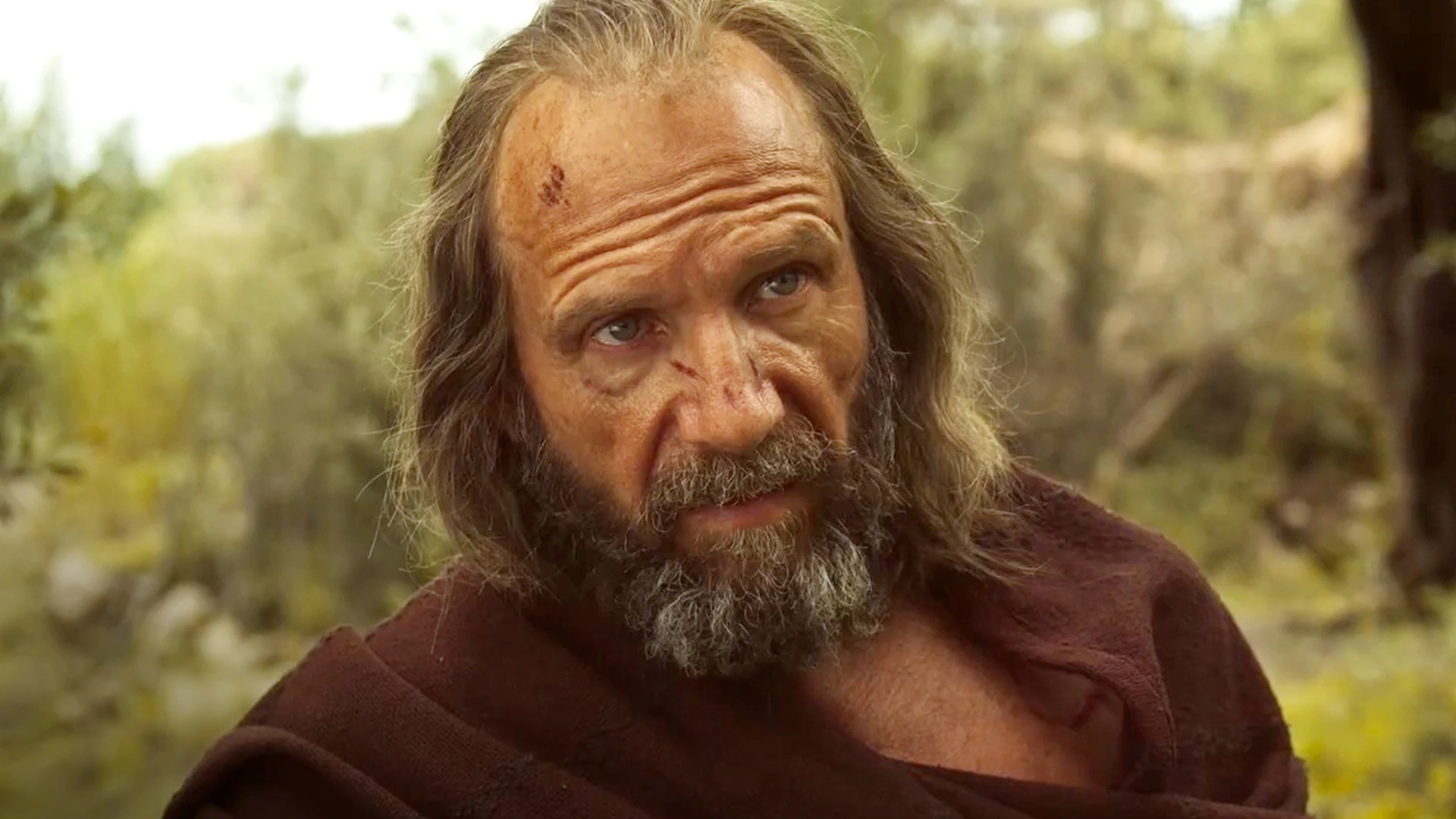Film Review: The Return
Film
The Return
Director: Uberto Passolini
Red Wave Films, Hanway Films
In Theaters: 12.06
This decade has been very good to Ralph Fiennes, the acclaimed actor who first achieved international recognition 31 years ago with his riveting performance in Schindler’s List. Between celebrated stage performances and a return to prominent leading roles in films ranging from The Menu to The King’s Man, he’s decidedly returning to a place in the spotlight, and his Oscar frontrunner status for his towering performance in Conclave has signalled a potential career renaissance. While The Return, the latest retelling of Homer’s The Odyssey, is understandably being eclipsed by the reception to the aforementioned film, it’s still a vibrant feather in his cap.
After being gone for two decades fighting the Trojan war, Odysseus (Fiennes) returns to Ithaca, broken and unrecognizable, the war having changed him forever. Odysseus finds his once-thriving kingdom in a state of poverty and chaos, lacking in leadership and a sense of self. Penelope (Juliette Binoche, The Taste of Things), his loyal and long-mourning wife, is held captive in her own palace, where she is besieged by suitors, including the scheming Antinous (Marwen Kenzari, Aladdin, Black Adam) who wants her hand in marriage—and the throne that comes with it. Meanwhile, their son, Telemachus (Charlie Plummer, Words on Bathroom Walls, National Anthem), is frustrated and disillusioned with his mother and despises his father, who he believes to be hiding out on a nearby island, and the young heir is being targeted by those who see him as an obstacle in their path to gaining power. Despite physical and emotional scars, haunted by his the atrocities he committed in the name of the glory of war, Odysseus must rediscover his courage to protect his family, drive out the invaders and reclaim his homeland and his legacy.
Director Uberto Passolini (Still Life, Nowhere Special) takes a somewhat minimalist approach, possibly driven by budget concerns, though what The Return lacks in epic scope it mostly makes up for in intimate character study. A slow burn that suffers from a somewhat sluggish first act that’s exposition heavy and weighted down by stilted dialogue, the movie hits its stride the moment that Fiennes and Binoche are first on screen together, reuniting after triumphant collaborations in Wuthering Heights (1992) and The English Patient (1996). When The Return really settles in to being a story of righteous wrath that examines the traumas of war, guilt, love and self doubt, as well as the power that comes from digging deep to find a part of you that you thought was dead, it becomes quite engaging and satisfying. The violent final third is rousing and entertaining, carrying equal parts sorrow and triumph as Odysseus faces the knowledge that he must become both a king and unfortunately, a warrior, once again, fighting against a portion of his own countrymen in order to save the country for his family and the rest of his people. An outstanding musical score by Rachel Portman (Benny & Joon, The Cider House Rules, Chocolat) adds a lot of lift, and if you know that Portman and Passolini were married for ten years and divorced in 2006, it adds a stirring dynamic that seems disarmingly fitting for the film’s story and for them to work together on such a strong project.
This an an actor-driven film, and Fiennes is wonderful in a layered and complex performance as a man tortured by demons, though it’s Binoche as the loving and hurting wife who must decide whether to turn away, or to embrace and forgive the man who abandoned her and became something of a demon himself for the good of her kingdom and her son, that really made the movie for me. The reteaming of these exquisite performers, who have already so powerfully portrayed the complexities of different forms of love before, is reason enough to see the film even if nothing else about it interested you. Plummer is a remarkable young actor, and it’s a shame the the screenplay by Edward Bond (Blow-Up) and John Collee (Master and Commander: The Far Side of the World) doesn’t give him a bit more meat, but the story is ultimately focused on Odysseus and Penelope, and it’s hard to argue with that choice.
If you’re going into The Return hoping for a swords-and-sandals extravaganza that can compete with Gladiator II, you’ll be very disappointed by what you get here. If you’re willing to be patient and stick with a film that’s a bit of Trojan horse, sneaking in as something eye-catching but hardly noteworthy at first, only to pack a wallop when you’re least expecting it, you’ll find yourself entertained. And if the Fiennes-Binoche pairing means half as much to you as it does to me, it’s a decidedly worthwhile drama that is worth your time and the price of admission. –Patrick Gibbs
Read more film reviews here:
Film Review: Nightbitch
Film Review: That Christmas
